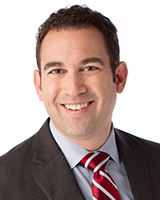Unlocking the mystery of sensor-covered, unmarked SUVs cruising San Francisco streets


SAN FRANCISCO (KGO) -- A fleet of SUVs lined with cameras and sensors has been rolling around San Francisco lately, right outside the ABC7 News studios.
We got curious about the unmarked vehicles that circle the block for hours, between long stretches of time spent stopped amid neatly arranged cones.
"When these cars started popping up on San Francisco streets, everyone's like what are those things?" said CNET News reporter Dara Kerr.
We finally went up and asked -- and were referred to Mark Rosekind, a former head of the National Highway Traffic Safety Administration under President Obama, and now the Chief Safety Innovation Officer at a startup called ZOOX.
When asked what his company is doing out there on the streets, he replied, simply, "We're saving lives."
ZOOX is a startup with an especially ambitious goal. It plans design, build, program and operate self-driving cars as a service like Uber or Lyft in dense urban cities.
"A vehicle that doesn't get drunk, doesn't get distracted picking up a phone, doesn't get drowsy, we could save so many lives by putting autonomous vehicles on the road," Rosekind said.
But first, he said, those autonomous vehicles need to learn how to drive safely -- and this San Francisco neighborhood full of narrow streets and mid-rise office buildings at the edge of the Financial District is the perfect spot to teach them.
"Our CEO calls it a black diamond," Rosekind said. "This is totally different than trying to operate in the suburbs somewhere, or on a straight highway. It's complicated to drive in San Francisco."
Currently, Rosekind says there's no exact number of test miles the cars need to drive before they're declared "ready" for fully-autonomous operation. They could drive these same streets a thousand times, he said, but the little things that are different about each trip around the block are what matter.
"Being out there (on the street) gets you exposed to those things that you couldn't even dream up if you wanted to," he said, adding that the artificial intelligence model also "drives" thousands of miles in software simulations based on the streets and buildings of this exact neighborhood.
We watched on a large monitor as a 3D rendering of the ZOOX car cruised past a slightly cartoonish model of the ABC7 studios, with yellow lines defining the edges of each lane on the simulated pavement. But on the real, physical pavement, the software learns what cars, bikes, trucks and people look like in all different kinds of light, and how they behave -- as a safety driver sits at the wheel, ready to take control during a "teachable moment."
"People are very focused on what they call edge cases," Rosekind said. "Those are those extreme, one-off kind of things that happen. If they happen once we should be able to learn from them so it never happens again."
ZOOX is joining a crowded field with the likes of Waymo, the Google spin-off, and Uber -- not to mention many traditional automakers diving into the field of autonomous transportation. Like Uber, ZOOX plans to be both owner and operator of its self-driving fleet.
"That will change car ownership," Kerr said. "You're not going to need car insurance, you're not going to need car dealerships, that's going to really change society."
But Rosekind is focused on something beyond the economic implications: saving human lives by eliminating human error.
"My father was actually a San Francisco police officer -- motorcycle officer -- and was killed in the line of duty when he got hit chasing somebody that had run a red light," he said. "Autonomous vehicles -- that represents a new tool that could absolutely get us to zero lives lost on our roadways."




